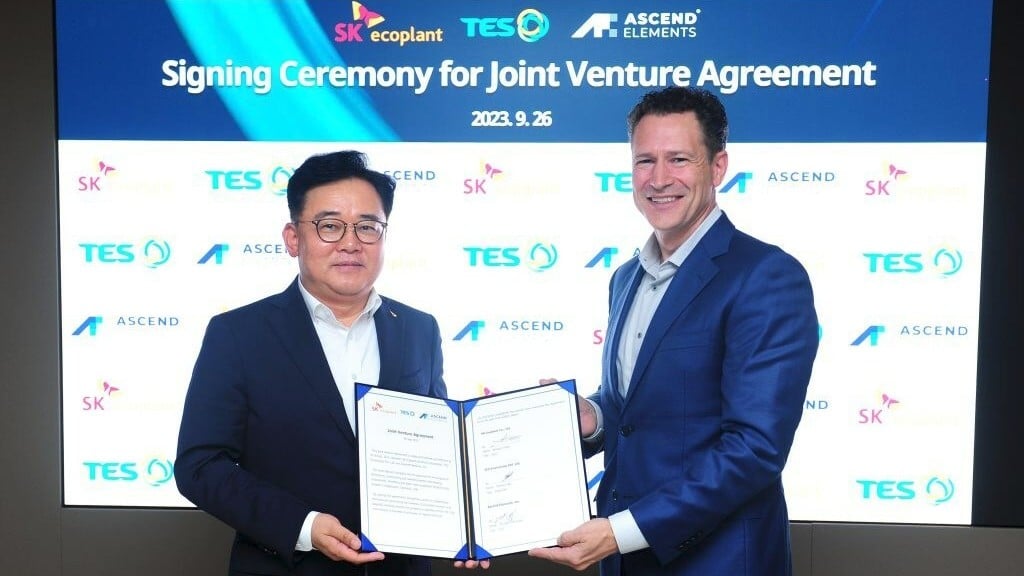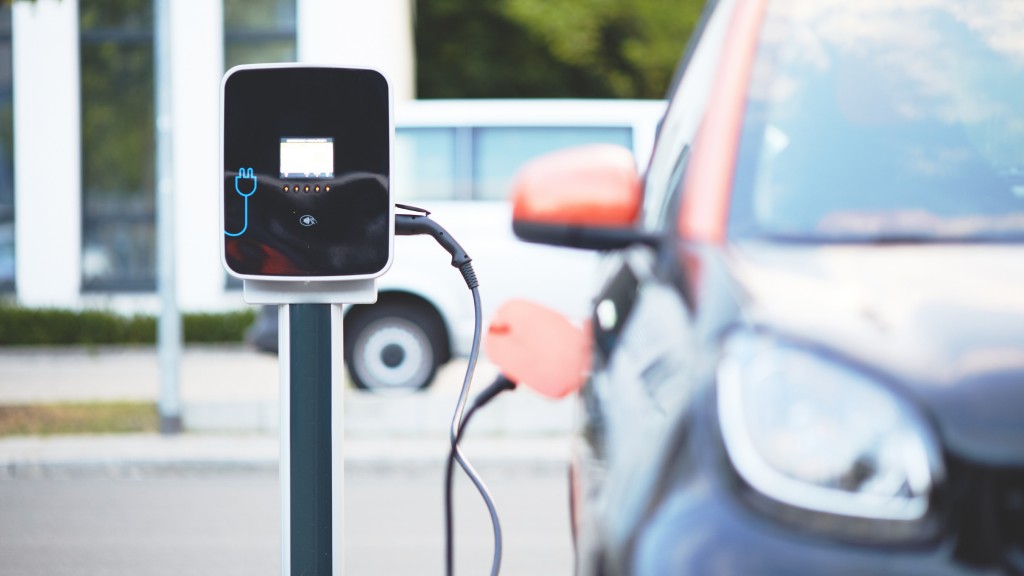
Ascend Elements has partnered with SK ecoplant and its e-waste recycling subsidiary, TES, to build a $65 million lithium-ion battery recycling facility in Hopkinsville, Kentucky. The 100,000-square-foot EV battery recycling facility will disassemble and shred approximately 24,000 metric tons of used EV batteries and gigafactory scrap per year – or approximately 56,000 EV batteries per year. Construction is scheduled to begin in November 2023 with completion in January 2025.
SK ecoplant will be the majority owner (64 percent) with Ascend Elements owning 25 percent and TES owning 11 percent of the new joint venture. Since 2022, SK ecoplant has invested more than $60 million in Ascend Elements.
"This is just the beginning of an entirely new industry in the United States," said Mike O'Kronley, CEO of Ascend Elements. "For every new EV battery gigafactory that is built, we will need to build a new battery recycling facility to process manufacturing scrap and end-of-life batteries. This is a capital-intensive endeavour, so joint ventures between strategically aligned partners is an ideal way to fund new infrastructure projects."
The new facility will create approximately 60 jobs and produce approximately 12,000 metric tons of black mass per year. Black mass is a fine powder that contains the valuable cathode and anode materials inside an electric vehicle battery. The black mass produced at the new SK ecoplant/Ascend Elements facility will help supply Ascend Elements' nearby Apex 1 engineered battery materials facility, which is currently under construction in Hopkinsville, Kentucky. Ascend Elements says that when operational in 2024, the $1 billion Apex 1 project will be North America's first sustainable cathode precursor (pCAM) and cathode active material (CAM) manufacturing facility. At full capacity, the Apex 1 project will produce enough pCAM for approximately 750,000 new EVs per year.
CAM and pCAM are engineered materials made to precise microstructure specifications for use in electric vehicle batteries. While most of the world's pCAM and CAM are made in China from primary (mined) metals, Ascend Elements is commercializing a method to make sustainable pCAM and CAM from black mass. The Hydro-to-Cathode direct precursor synthesis process eliminates several intermediary steps in the traditional cathode manufacturing process.
Ascend Elements recently closed a $542 million funding round and received $480 million of U.S. Department of Energy grant awards to accelerate the construction of the Apex 1 project.




